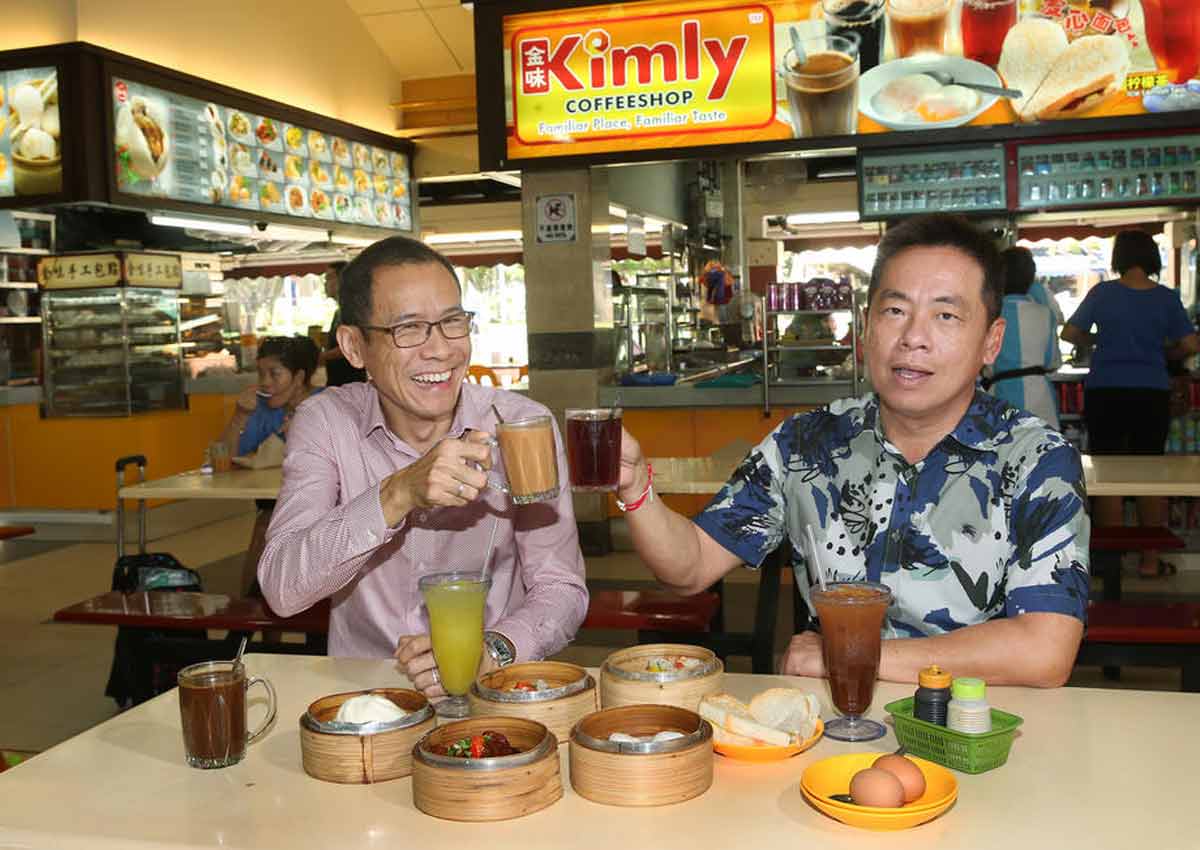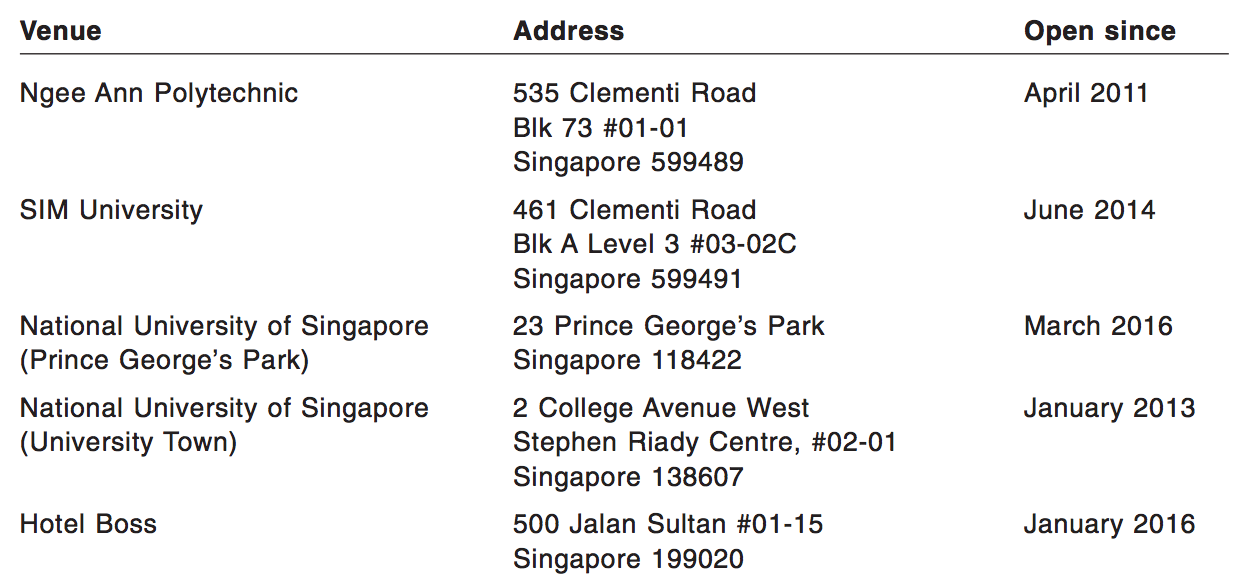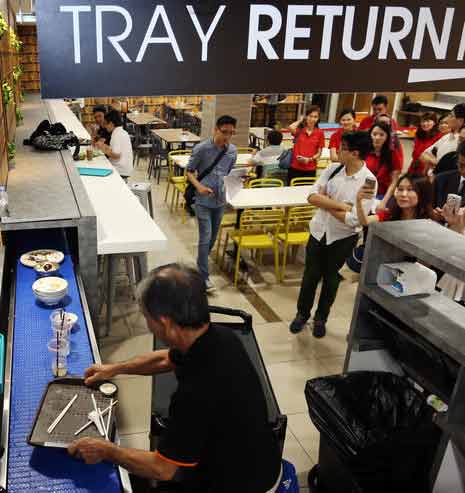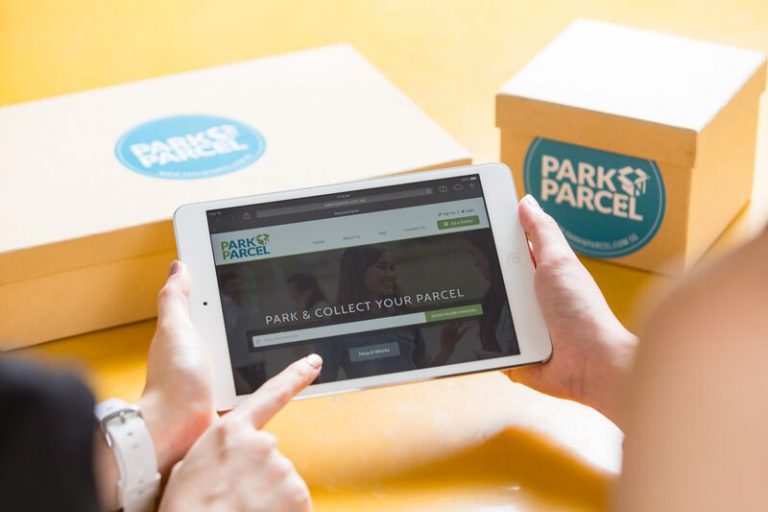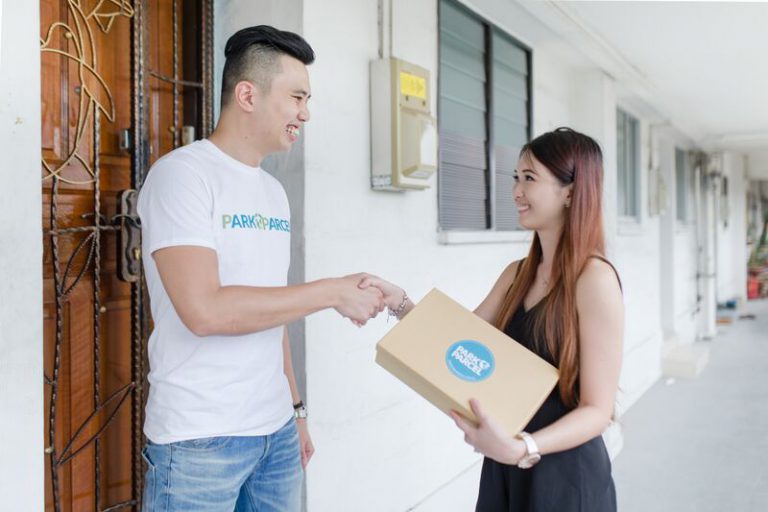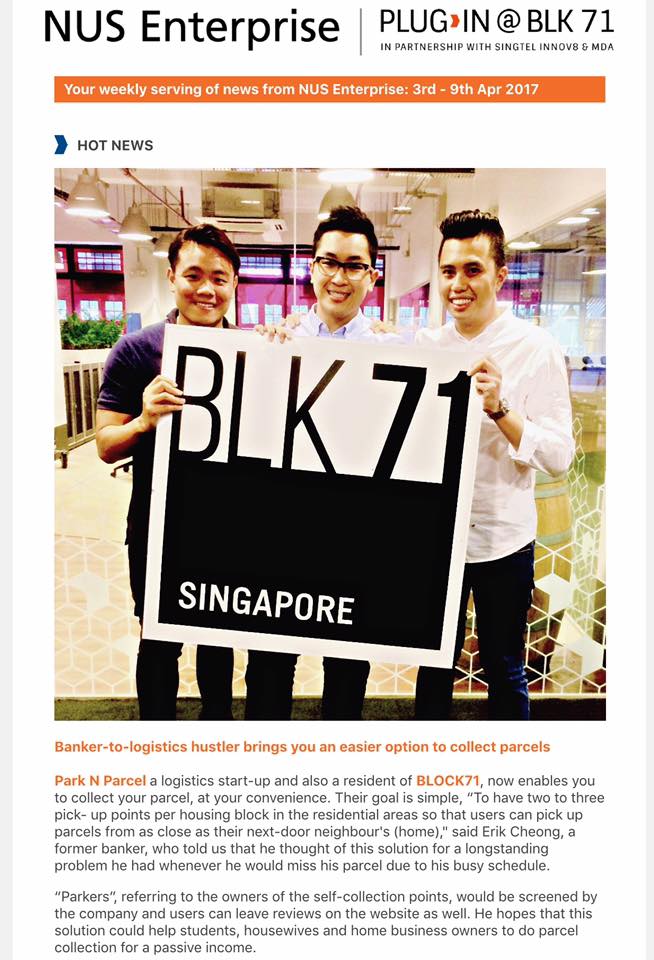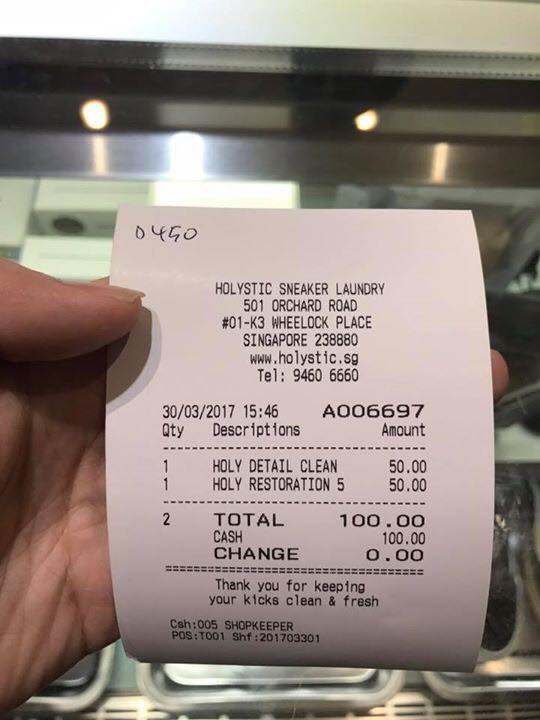![]()
With the end of the university exam period, internship season is here again, and while some have already embarked on their internship journey, many are now in the midst of preparing for, or applying to various companies for opportunities.
As compared to taking up part-time jobs during the term breaks, internships are fast becoming a common option for undergrads, mostly because of how they're great opportunities for getting an insight into working life.
A while back, we asked startup founders about what they felt about internships and interns, so now, we find out the other side of the story.
Deborah, 22
- Are you looking for an internship during this term break? If yes, do you have an idea of what scope you're looking at? If not, why?
I'm still considering if I should be doing an internship - because I feel like I need a break haha!
And I want to spend time with family.
- Have you interned before? If so, how was your experience?
Yes! It was a good experience. I learnt a lot about the industry and gained new skills.
I also had very good colleagues who were pleasant to work with.
It definitely exposed me to how a company functioned, and what to expect.
- What's on your wish list for an internship?
To learn more about the industry I work in.
To gain experience so I can better understand if this is the job for me.
It would be good to gain some technical skills too, like learn new software or hardware, and possibly gain skills in knowing how to carry yourself, how to deal with clients, and so on.
- What's one thing you wish to tell employers who are looking to take on interns?
I would tell them to check in with interns occasionally to make sure that they learn something or get something out of the internship.
Also, let them try out all sorts of things, even if it's something menial (for all you know, they might enjoy it).
After all, the internship is a chance for students to gain work experience and learn all that they can within a few months.
Yeo Khee, 24
- Are you looking for an internship during this term break? If yes, do you have an idea of what scope you're looking at? If not, why?
Yes I am!
My passion is in digital marketing, advertising, and branding.
I always thought it was interesting how similar products can be priced so differently and consumers still buy them!
- Have you interned before? If so, how was your experience?
I had two internship experiences and the recent one with DiscoverSG was pretty good.
The environment and culture are awesome, and the people are even better!
They had great team-spirit as they are always helping one another.
The team was also really open to new ideas and don't mind sharing their knowledge and experience.
It was fulfilling as when I left, I knew I made friendships that can last a really long time.
- What's on your wish list for an internship?
Growth is the key aspect for me when it comes to an internship.
I aim to improve not just in soft skills but also develop an expertise in areas such as digital marketing, social media outreach, and creating marketing plans.
Hope my employer will be someone that is approachable and also willing to share and provide feedback throughout the journey!
What's one thing you wish to tell employers who are looking to take on interns?
There are many talented and passionate undergraduates out there, especially in the marketing industry.
I hope that GPA is not the top priority in the decision criteria of hiring an intern!
Most of the things we learn in school are not going to be relevant and the ability to study does not equate to passion or creativity.
Dennis, 24
- Are you looking for an internship during this term break? If yes, do you have an idea of what scope you're looking at? If not, why?
Yes, I have been on the lookout for an internship since early-March and thankfully, I have managed to secure one which falls under the scope of the real estate industry.
I am particularly keen on this industry because of my fascination with real estate investment trusts (REITs) as a form of income-investing vehicle.
- Have you interned before? If so, how was your experience?
Yes, I have had a few previous internships.
The experience varies, and I guess it is really dependent on the culture of the company itself.
On one hand, internships with bigger, or government-related corporations might be a little more structured, and on the other hand, internships with start-ups might be more flexible in terms of the job scope as well as the working environment.
- What's on your wish list for an internship?
On the top of my wish list for an internship will be the relevance of acquired knowledge.
I feel that it is much more rewarding to see how theoretical knowledge is being played out in the real industry itself.
As for the type of employer, the internship will definitely be more enjoyable if the employer is more nurturing and willing to involve the intern in not just superficial aspects.
What's one thing you wish to tell employers who are looking to take on interns?
Even though summer internships might have a relatively short duration of about only 3 months, it is still good to 'assign' interns a key project which they can deliver during the internship.
In that way, interns have something that they can work on, and towards to during their stay.
Marie, 22
- Are you looking for an internship during this term break? If yes, do you have an idea of what scope you're looking at? If not, why?
I'm doing an internship now!
I do not have any idea of what job scope I want but when I search for an internship, I do know what industry I want to be in.
- Have you interned before? If so, how was your experience?
Yes, I have interned before.
Previously I interned at an events company, it was fun!
I was able to gain exposure and understand how that industry truly works.
It allowed me to test out if that's the industry I want to be in in the near future.
- What's on your wish list for an internship?
Hmm, when I take up this internship, I would want to gain exposure, experience, and understand how the industry works.
Apart from that, I hope to gain some soft skills that would be transferable, regardless of what other jobs I do.
I would want the 'modern' kind of employer, where they would take your suggestions and let you be part of the team, rather than those traditional employers where they are pretty bossy, and you will have to follow their instructions with no room for suggestions.
- What's one thing you wish to tell employers who are looking to take on interns?
I would say, millennials are not as weak as what the news often label us.
Give them a chance, and let them have a voice.
Be open to suggestions (you may direct them to do stuff, but just find a good balance).
Don't judge them so quickly and allow them to perform.
If employers are willing to groom them, they will blossom eventually.
Claren, 21
- Are you looking for an internship during this term break? If yes, do you have an idea of what scope you're looking at? If not, why?
Yes. I will definitely look more into the industry associated to my field of study to be able to comprehend and experience a lifestyle I'll most likely be adapting to after graduation.
- Have you interned before? If so, how was your experience?
Yes I have.
It was a amazing experience as it was able to equip me with real life experiences and techniques to survive in the working world.
- What's on your wish list for an internship?
As far as skills go, I'd incline more towards interpersonal relationships and adaptability to surroundings.
Employer-wise, I'd prefer an employer who has good understanding of the culture and mission of the organisation so that they will able to assign work fairly and efficiently.
- What's one thing you wish to tell employers who are looking to take on interns?
Interns are here to learn as well as help out as much as they can.
Give them a chance to experience and learn real life problems, and give them a conducive working environment.
Sue Mae, 22
- Are you looking for an internship during this term break? If yes, do you have an idea of what scope you're looking at? If not, why?
What I look for in an internship is firstly the company itself - what they do, and how the (few) people I manage to meet and interact with during the application and interview are.
But what's more important is the role that they offer - what I'll be involved in, whether there is an opportunity for learning, and whether it is relevant to what I want to be doing in the future.
- Have you interned before? If so, how was your experience?
Yes I have.
My experience was fantastic and really fulfilling because I didn't really feel like I was "just an intern" because I was involved in so many aspects!
I guess this was because my employers really made an effort to involve me and get my input on things.
I really liked the company culture and my colleagues as well.
I think I was lucky though, because I have friends that really didn't enjoy their internships.
- What's on your wish list for an internship?
I'd like an internship where I have opportunities to learn, explore, and be tasked with more responsibilities.
I would also like to see how my skills and knowledge acquired in university can be put to use in the real world.
An employer that's open-minded and always willing to help or give advice would be great.
Of course, a cool office complete with a well-stocked pantry would be an added bonus!
- What's one thing you wish to tell employers who are looking to take on interns?
I guess it would be to give interns more responsibility and to listen to their opinions as well because who knows, they might just have a brilliant idea you never thought of.
YunJie, 21
- Are you looking for an internship during this term break? If yes, do you have an idea of what scope you're looking at? If not, why?
Yes I am.
Since I'm currently undertaking a degree in Business with Communications, I'm looking for one that's related to social media and digital marketing.
This opens up room for creativity instead of just the typical mundane office work.
On top of that, as I'm searching for an internship, I'm looking for one which I would want to continue working at after I graduate.
- Have you interned before? If so, how was your experience?
I have interned back in my poly days and it was a pretty good experience with the friendly colleagues around.
But the work that I had to do was pretty mundane as there was a flow of work which I had to adhere to.
As a customer service executive, I had to deal with different situations throughout the day.
All in all, I would say that it's a good experience, but I realised it isn't something I wanted to do in the future.
- What's on your wish list for an internship?
I wish for a boss I can work well with, and would guide me along to familiarise myself with the systems instead of throwing them at me, expecting top-notch work without helping.
It would be great to have an insight of how the industry is like through the internship.
- What's one thing you wish to tell employers who are looking to take on interns?
Do provide the necessary guidance and trust your interns with work as that would definitely give them a boost in confidence.
By doing that, they would want to do their best, knowing that their employers trust them with the work.
Glen, 23
- Are you looking for an internship during this term break? If yes, do you have an idea of what scope you're looking at? If not, why?
Yes. Scope-wise, you must be clear on what you set out to achieve during an internship, but also be open to different job scopes as part of a learning experience.
- Have you interned before? If so, how was your experience?
Yes, some companies good, some companies bad. Interns actually have a lot of potential and capabilities, but some companies just hire interns for the sake of low wages and administrative work.
- What's on your wish list for an internship?
I want to work towards building a Strategic Management Consulting experience, such as creating case models and strategic analysis on client organisations.
This is something I would like to venture into when I graduate.
I also wish for employers to be encouraging, and coach me.
But they should also value results, and push me to go the extra mile and take on more responsibilities.
- What's one thing you wish to tell employers who are looking to take on interns?
Firstly, you should look at how you want to structure your internship programs.
State clearly the job scope that the intern is hired to perform to prevent any confusion and disappointment between the intern and the organisation.
Secondly, conduct a comprehensive interview with the intern, ensuring the requirements you seek meets what he can offer to the organisation.
Lastly, ensure he is adding value to the organisation and himself - interns should feel that they are doing what they like to do without compromising on the value add towards the organisation.
Interns are in the organisation to learn after all, so do teach something relevant that they want to do in the future!
Maybe they will want to convert to full time after the internship ends!
Kee Siang, 25
- Are you looking for an internship during this term break? If yes, do you have an idea of what scope you're looking at? If not, why?
Yes! I am looking for something in management consulting.
- Have you interned before? If so, how was your experience?
Nope, never interned before.
- What's on your wish list for an internship?
Skills-wise, the ability to apply theory to actual situations and issues faced by firms in their management issues.
Also, the ability to distill complex problems to be rectified.
Employer-wise, any reputable management consulting firm would do.
- What's one thing you wish to tell employers who are looking to take on interns?
Focus on developing skilled interns to broaden pool of labour in the future.
Cassandra, 23
- Are you looking for an internship during this term break? If yes, do you have an idea of what scope you're looking at? If not, why?
Yes, I am looking for an internship this term break as my course is required to do a 100 hour placement.
I'm looking at marketing field for this internship to get a better understanding of how companies promote themselves, and how they reach out to their target audience.
- Have you interned before? If so, how was your experience?
Yes, I have interned in a big corporation when I was in Poly.
It was my very first time stepping into the working world and it was an eye opening experience for me.
I have learnt a lot - not only technical skills but also interpersonal skills.
- What's on your wish list for an internship?
I want to learn as much as I can.
I'm very willing to try out new fields to upgrade myself.
I'm definitely looking for employers who are willing to give me opportunities to expose myself to different situations so as to learn more skills.
- What's one thing you wish to tell employers who are looking to take on interns?
I wish to tell my employers to be more patient and positive when taking up interns because we are students and we are here to learn, even if we lack experience.
Not Just Saikang Warriors
From the responses, it's clear that these undergrads have greater intentions other than just filling up their time, or getting some pocket money.
Having worked with, and managed interns, I have to admit that more often than not, they bring with them much-needed energy and fresh perspectives - ones that as full-timers, we might be too jaded to come up with.
We wish all interns-to-be the best of luck for internship season!
Vulcan Post is all about living life with a digital edge, up and coming startups, and people who inspire conversations.
Visit Vulcan Post for more stories.




















